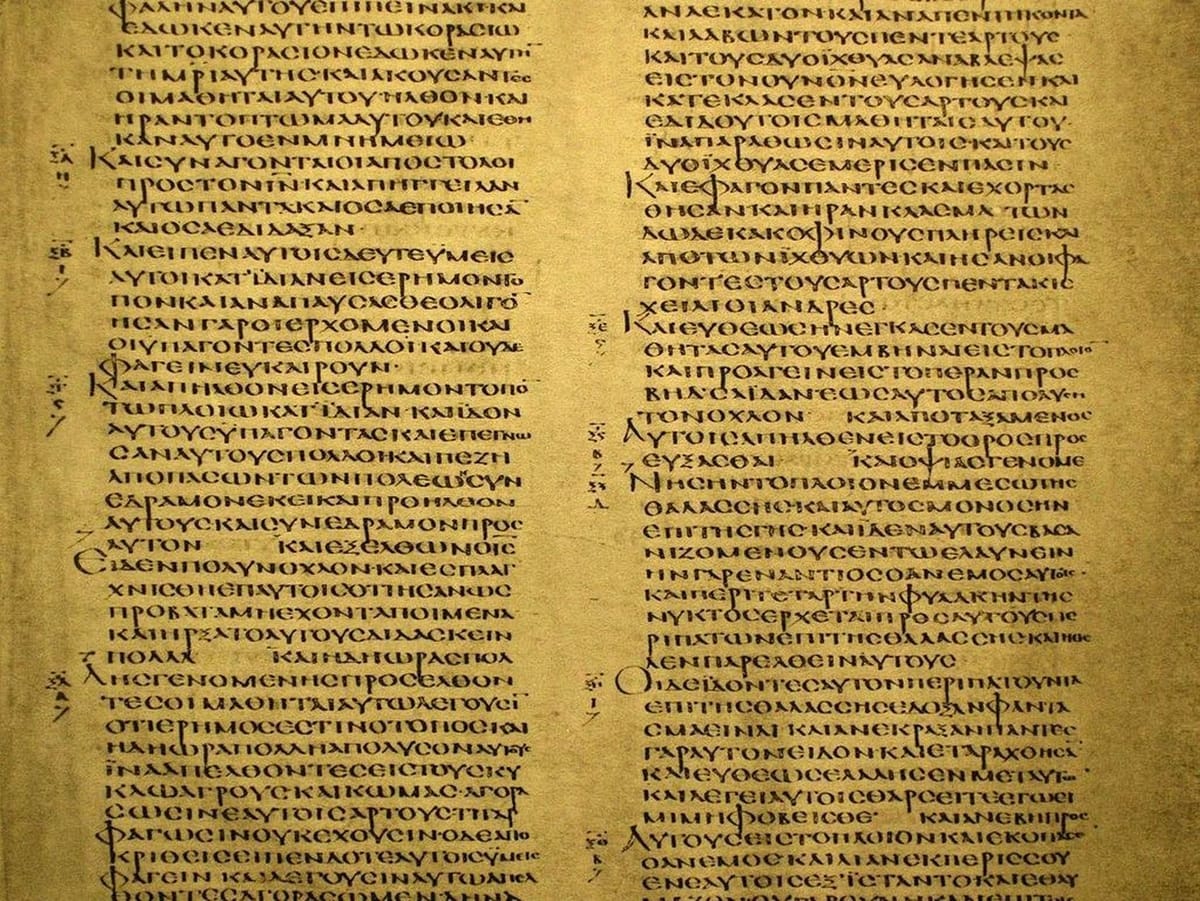Recently on the World Magazine with Jeff Riddle podcast episode 258, pastor McCurley challenged modern text scholars to bring an argument defending the use of modern texts. There is another thread in this podcast but it is very convoluted with many different rabbit tails so I am posting my transcription of the challenge and asking for a response. Please forgive me if I didn’t copy it down word for word.
David Wilson:
Do you think in order to strictly subscribe to the confession then it would be inconsistent to hold to the modern text and modern translations?
Pastor McCurley:
That is correct.
David Wilson:
What would you say if someone gave you some push back and said you are being to narrow brother?
Pastor McCurley:
It is similiar to what you said earlier, to narrow? You know it doesn’t really say anything. So any time we assert a claim, it automatically eliminates those competing views. We are necessarily narrowing our position. The problem is, are we going to say that the doctrine of providential preservation is applied to all manuscripts? We are really not saying much at that point. Someone without confusing cannonical issues with textual critical issues, someone could say the Pseudepigrapha has been providentially preserved, etc. Right so, the problem I think is de-coupling the language of “by singular care and providence” from the language of “kept pure in all ages”. So when a person wants to say, “oh this just applies to everything” then you are actually de-coupling those two things, the “kept pure in all ages” from the concept of “by singular care and providence”, you following me? So, that requires an argument. So I guess I would say, about this is to narrow, fair enough but give me an argument that will address what I am saying about the de-coupling of these two concepts and without anachronism. When the divines wrote those words they meant something. We have an idea of what they meant on the things they wrote, to be honest I’m just not hearing the competent scholars that are writing all sorts of positions and I haven’t come across anything that I have found cogent or persuasive that actually delivers an argument in regards to this.
I included a link to the podcast and the question begins at 1:18:40.
David Wilson:
Do you think in order to strictly subscribe to the confession then it would be inconsistent to hold to the modern text and modern translations?
Pastor McCurley:
That is correct.
David Wilson:
What would you say if someone gave you some push back and said you are being to narrow brother?
Pastor McCurley:
It is similiar to what you said earlier, to narrow? You know it doesn’t really say anything. So any time we assert a claim, it automatically eliminates those competing views. We are necessarily narrowing our position. The problem is, are we going to say that the doctrine of providential preservation is applied to all manuscripts? We are really not saying much at that point. Someone without confusing cannonical issues with textual critical issues, someone could say the Pseudepigrapha has been providentially preserved, etc. Right so, the problem I think is de-coupling the language of “by singular care and providence” from the language of “kept pure in all ages”. So when a person wants to say, “oh this just applies to everything” then you are actually de-coupling those two things, the “kept pure in all ages” from the concept of “by singular care and providence”, you following me? So, that requires an argument. So I guess I would say, about this is to narrow, fair enough but give me an argument that will address what I am saying about the de-coupling of these two concepts and without anachronism. When the divines wrote those words they meant something. We have an idea of what they meant on the things they wrote, to be honest I’m just not hearing the competent scholars that are writing all sorts of positions and I haven’t come across anything that I have found cogent or persuasive that actually delivers an argument in regards to this.
I included a link to the podcast and the question begins at 1:18:40.


